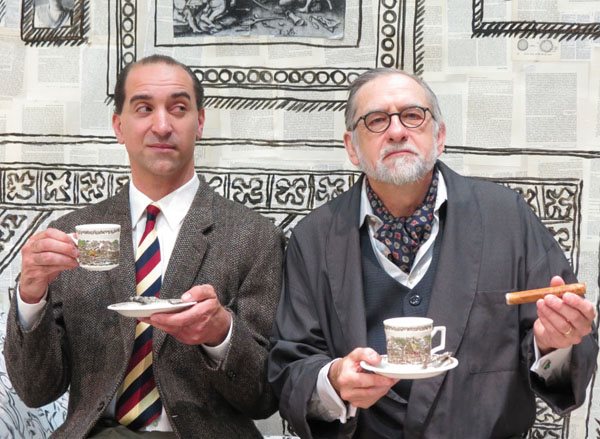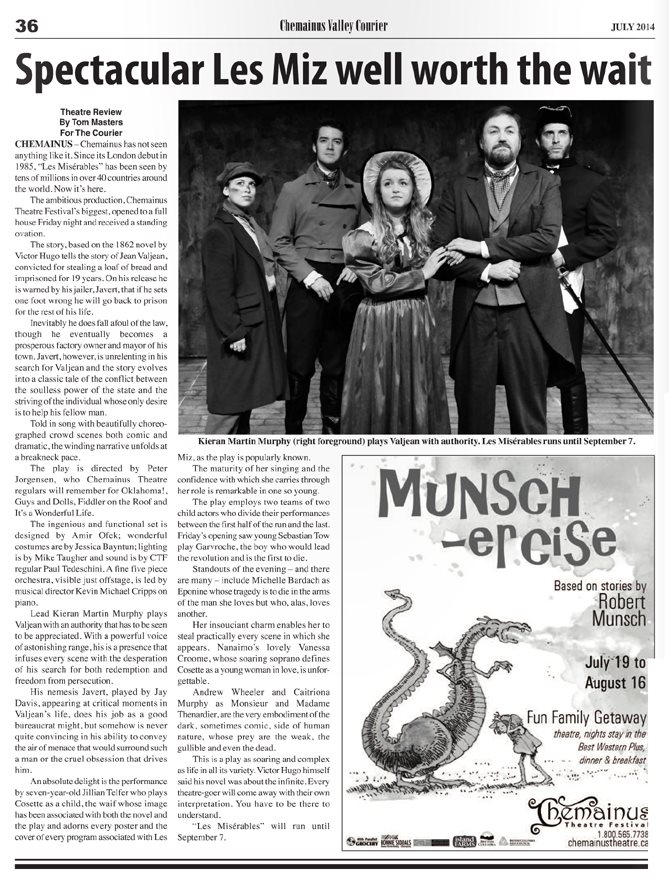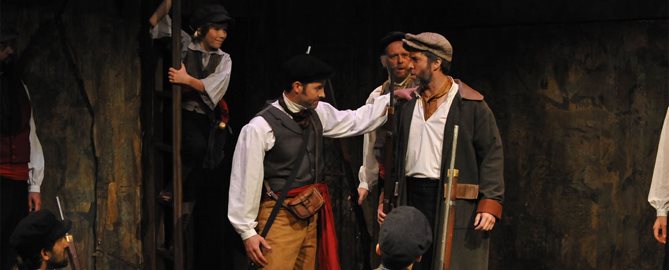Freud’s Last Session: The Creative Team
Meet the creative team behind our upcoming show Freud’s Last Session…
 |
Mark St. GermainPlaywright Mark has written the plays Camping with Henry and Tom(Outer Critics Circle Award and Lucille Lortel Award), Out of Gas on Lovers’ Leap and Forgiving Typhoid Mary (Time Magazine’s Year’s Ten Best), Ears on a Beetle and The God Committee, all published by Samuel French and Dramatist Play Service. With Randy Courts, he wrote the musicals The Gifts of the Magi, Johnny Pye and the Foolkiller (winner of an AT&T New Plays for the Nineties Award), and Jack’s Holiday at Playwrights Horizons. Mark’s musical, Stand by Your Man: The Tammy Wynette Story was created for Nashville’s Ryman Theater. Television credits include Writer and Creative Consultant for The Cosby Show. He co-wrote the screenplay for Carroll Ballard’s Warner Brothers film, Duma. Mark directed and co-produced the upcoming documentary, My Dog: An Unconditional Love Story, featuring, Richard Gere, Glenn Close and Edward Albee among many others. St. Germain is an alumnus of New Dramatists, where he was given the Joe A. Callaway Award, a member of the Dramatists Guild, the Writer’s Guild East and a Board Member of the Barrington Stage Company. He was awarded the New Voices In American Theatre award at the William Inge Theatre Festival. |
 |
Daniel vanHeystDirector/Production Designer Daniel is Professor of Drama at The King’s University College, where he heads the drama, visual art, and communications programs. Since 1981, he has designed hundreds of professional, educational, and community theatre productions, including 14 seasons of The Canadian Badlands Passion Play. A past president of Theatre Alberta and resident designer at Theatre Network for 10 seasons, Daniel keeps active in Edmonton’s theatre community, particularly through recent shows with Kompany Family Theatre. |
 |
Michael PengC.S. Lewis Since 1994, Michael has worked professionally in theatre as an actor, director, designer, teacher, and producer – in Alberta, Ontario, the U.S., and Europe. In 2008, he received his MFA in Theatre Directing at the University of Alberta and is Co-Artistic director of the critically acclaimed, award-winning Edmonton company, wishbone theatre. In Alberta, Michael’s busy freelance career has seen him performing with The Citadel Theatre, Northern Light Theatre, Theatre Calgary, wishbone, Freewill Shakespeare Festival, Kill Your Television, Studio Theatre, and Surreal SoReal Theatre, among others. Recent Fringe hits include lauded wishbone productions of Bashir Lazhar, by Evelyne de la Chenelière (2009), SHIMMER, by John O’Keefe (2010), and Parlour Song, by Jez Butterworth (2012). Upcoming projects include performances in Sartre’s Shorts with Surreal SoReal and a new translation of Chekov’s The Three Sisters. |
 |
Randy RitzSigmund Freud As an actor, Randy has performed in Dallas, Berlin, Beijing and Thorsby, AB. He has directed over forty drama productions—many of them national in scope. Randy is also an author and curriculum writer for Standard Publishing, has produced two independent feature films including a supernatural thriller called “Unfinished Business” and he is a passionate educator and story coach. For thirty years has served as chair of the Drama Department at Concordia University College. |





 What is it that has made Les Misérables, the musical a worldwide phenomenon? Let us start with an attempt to sum up the 1463 page novel written by Victor Hugo.
What is it that has made Les Misérables, the musical a worldwide phenomenon? Let us start with an attempt to sum up the 1463 page novel written by Victor Hugo.

